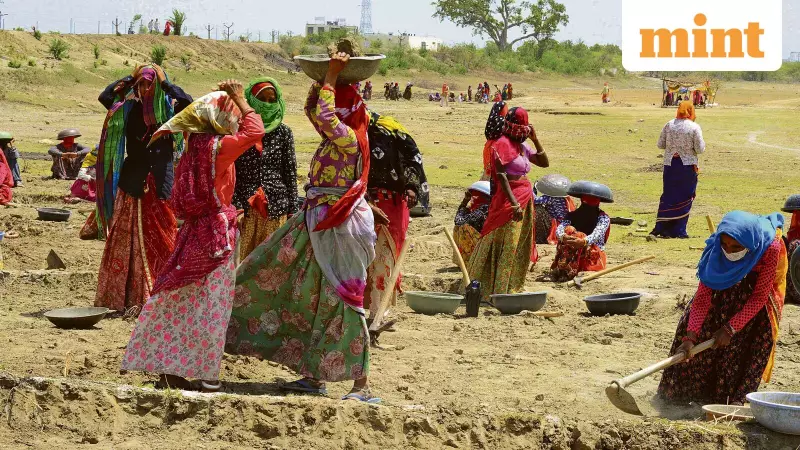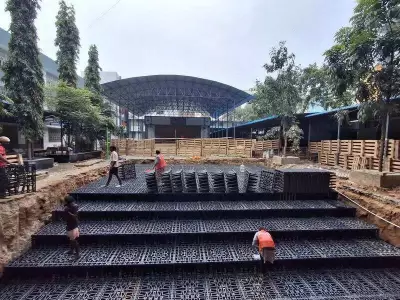
Historic Labour Reform: 29 Laws Become 4 Codes
In a landmark move that represents the most significant overhaul of India's labour laws in recent decades, the Central government announced on Friday, November 21, the consolidation of 29 separate labour statutes into four comprehensive codes. This revolutionary restructuring aims to bring clarity and simplification to both employers and employees while safeguarding workers' rights and promoting business efficiency.
What Different Worker Categories Gain
Fixed-Term Employees (FTE) will experience substantial improvements in their working conditions. They will now receive all benefits equivalent to permanent staff, including leave entitlements, medical coverage, and social security protections. The gratuity eligibility period has been dramatically reduced from five years to just one year of service. Additionally, FTEs are guaranteed equal wages compared to their permanent counterparts, ensuring better income security.
Gig and platform workers receive formal recognition for the first time under the new labour framework. The codes clearly define gig work, platform work, and aggregators, bringing these modern employment forms into the regulatory fold. Aggregators are now required to contribute 1-2% of their annual turnover toward social security, capped at 5% of the amount payable to gig and platform workers. The introduction of an Aadhaar-linked Universal Account Number will enable seamless access to welfare benefits and ensure complete portability across state boundaries.
Contract workers can anticipate enhanced social protections and health benefits. They will receive free annual health check-ups and become eligible for gratuity after completing one continuous year of service. The primary employer bears responsibility for providing health benefits and social security coverage to contract workers.
Progressive Provisions for Women and Youth
The new labour codes introduce groundbreaking provisions for women workers, including a legal prohibition against gender discrimination and a firm commitment to equal pay for equal work. Women now have the right to work night shifts and in all types of occupations, including underground mining and heavy machinery operations, provided they give consent and adequate safety measures are implemented. The codes mandate women's representation in grievance redressal committees and expand the definition of family to include parents-in-law for female employees, thereby increasing dependent coverage.
Youth workers benefit from several protective measures, including guaranteed minimum wages and the promise of appointment letters for all employees. The reforms explicitly ban worker exploitation by employers and make wage payment during leave periods mandatory. To ensure a decent standard of living, workers will receive wages according to the floor wage determined by the Central government.
Sector-Specific Benefits and Protections
MSME workers covered under the Social Security Code, 2020 will receive minimum wage guarantees regardless of enterprise size. They gain access to essential facilities including canteens, drinking water, and rest areas. The codes establish provisions for standard working hours, double overtime wages, paid leave, and timely wage payments.
Plantation workers now fall under the protection of both the Occupational Safety, Health and Working Conditions (OSHWC) Code and the Social Security Code. These regulations apply to plantations employing over 10 workers or covering at least 5 hectares. Mandatory safety training for handling chemicals and compulsory protective gear aim to prevent accidents. Comprehensive ESI medical facilities for workers and their families, along with educational facilities for children, are assured.
Audio-visual and digital media professionals, including electronic media journalists, dubbing artists, and stunt performers, now qualify for full benefits. All workers must receive appointment letters clearly specifying their designation, wages, and social security entitlements. Overtime work requires employee consent and must be compensated at double the normal wage rate.
Mine workers gain improved safety standards and health protections. The Social Security Code recognizes certain commuting accidents as employment-related under specific conditions. Workers are guaranteed free annual health check-ups, and working hours are limited to 8-12 hours daily and 48 hours weekly to maintain work-life balance.
IT and ITES employees will receive salaries by the 7th of each month, with mandatory equal pay for equal work to boost women's participation. The codes ensure prompt resolution of harassment, discrimination, and wage disputes.
Dock workers achieve formal recognition and legal protection, with provident fund, pension, and insurance benefits extended to all workers, including contract and temporary staff. Employer-funded annual health check-ups become mandatory, along with access to medical facilities, first aid stations, and sanitary areas.
Export sector workers employed on fixed-term contracts become entitled to gratuity, provident fund, and other social security benefits. Employees gain the right to take annual leave after completing 180 days of work within a year.
This comprehensive labour reform represents a significant step toward modernizing India's workforce regulations, extending social security coverage to previously excluded sectors, and creating a more equitable and transparent working environment for millions of Indian workers across diverse industries.





